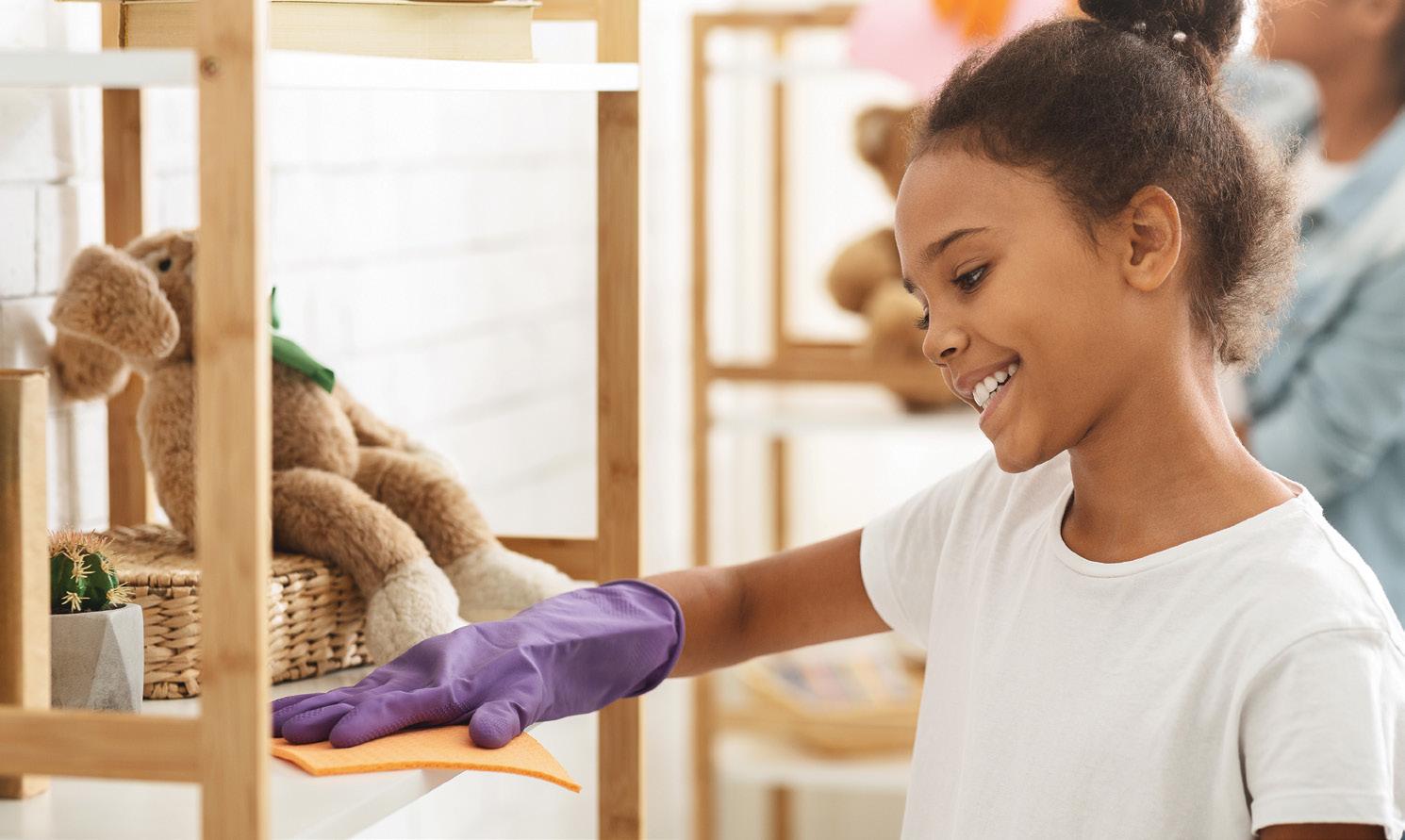
2 minute read
HEALTHY HOME
from Natural Awakenings: Alachua, Citrus, Marion, Sumter Co & The Villages, Florida
by Natural Awakenings - Alachua, Citrus, Marion, Sumter Co & The Villages, Florida
HEALTHY HOME, HEALTHY KIDS How to Keep Them Safe
Ahealthy home for kids looks much like what’s needed for a healthy planet: clean air, clean water and clean food, all of which create a space in which our children can be well and thrive. This means taking active steps to eliminate everyday contaminants that can harm their developing organs and brains. “Children are not miniadults. Their bodies cannot filter out toxins and chemicals as effectively as a full-grown adult body can,” says Kimberly Button, author of The Everything Guide to a Healthy Home: All You Need to Know to Protect You and Your by Ronica O’Hara
Advertisement
Family from Hidden Dangers. Here are some practical steps to take. Clean Air n Clean “green”. The chemicals in popular disinfectants alter children’s gut microbes and heavy use leads to higher body mass index by age 3, reports Canadian researchers; eco-friendly cleaning agents do not harm kids’ health, they found. A solution of one part white vinegar to three parts water can be used to clean counters, floors and toilets. The acetic acid in vinegar can deactivate even the flu and tuberculosis viruses, recent studies have shown.
n Get rid of mold. Mold, especially if it’s black, is highly toxic to children: a Polish study found it lowered IQs in children under 6. “When the mycotoxins in mold affect children’s developing nervous systems we may see fatigue, difficulty learning, and attention issues,” says naturopath Jill Crista of Janesville, Wisconsin, author of Break The Mold: 5 Tools to Conquer Mold and Take Back Your Health. She recommends mixing in a glass (not plastic) spray bottle essential oils, such as rosemary, holy basil, tea tree or eucalyptus, spraying the mold, and using a disposable cloth to wipe it off. The essential oils “not only kill mold, but neutralize the toxins,” she says. “It won’t fix mold on porous surfaces, which require professional remediation.”
n Ban smoking. Children that breathe secondhand smoke are more prone to ear infections, coughs and colds, tooth decay and respiratory problems like asthma and pneumonia, and they miss more days of school, reports the American Academy of Pediatrics. Even smoke residue that clings to clothes, furniture, bedding and other surfaces can harm a child when this third-hand smoke is inhaled, absorbed or ingested.
Clean Water n Get a water test. Because children drink more water per pound than adults, even low levels of contaminants can impact their IQ and behavior. Check with the local health department to see if it offers free test kits, buy one at a hardware store or find a local lab by calling the U.S. Environmental Protection Agency Safe Drinking Water Hotline at 800-426-4791.
Join now at NaturalAwakeningsSingles.com SERIOUS SOMEONE GET ABOUT MEETING










